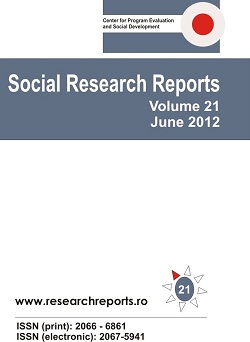Geopolitical Process in Eastern Europe after Iron Curtain – Energy Issues. A Sociological Perspective
Geopolitical Process in Eastern Europe after Iron Curtain – Energy Issues. A Sociological Perspective
Author(s): Elena-Cristina BichirSubject(s): Social Sciences
Published by: Expert Projects Publishing
Keywords: Iron Curtain; Eastern Europe; ’89 Eastern Europe revolutions; the triangle power-energy; resources-space; cartographic method; Russian „energy weapon”.
Summary/Abstract: Starting from geopolitical events that influenced the emergence of the Iron Curtain and continuing with geopolitical developments that occurred after the communist period, this paper analyses, from a sociological perspective, the controversial topic of energy in Eastern Europe. I am firstly briefly reviewing some of the important events of modern history, which finally, after the Second World War, led to drawing the Iron Curtain on the geopolitical map of the world, and to the division of Eastern Europe into political spheres of influence, i.e. the Anglo- American and the Soviet one. Secondly, I believe it is relevant to mention how the concept of „Eastern Europe” appeared and developed. Then, it is worth focusing on the period from 1989 to 1991, which is important for the revolutions that took place in Eastern Europe, which actually ended the European coexistence between communism and democracy. This paper has a solid theoretical basis, which allows a theoretical convergence between sociological and geopolitical literature. Both Mackinder’s (1904) and Mahan’s (1918) geopolitical theories, with their concept of spatiality, and the theory of social constructivism are relevant to the sociological problem studied, as well as to the controversial topic of energy in Eastern Europe. The concepts of these theories allowed me to develop both a quantitative imaging modality of representation of the triangle «power- energy resources – space» in a certain period of time, through the mapping (cartographic) method, and a qualitative analysis approach, through the category patterns used in analysing the behaviour of socio-political actors, where patterns were designed based on their relevance to the reality studied. Thus, this article examines the way Russia uses the „energy weapon” to bring to terms with Eastern European states, especially with Ukraine, and the relationship of dependence of the East European states on Russian energy, within a wider frame of reciprocal interdependence.
Journal: Social Research Reports
- Issue Year: 4/2012
- Issue No: 21
- Page Range: 5-22
- Page Count: 17
- Language: English

